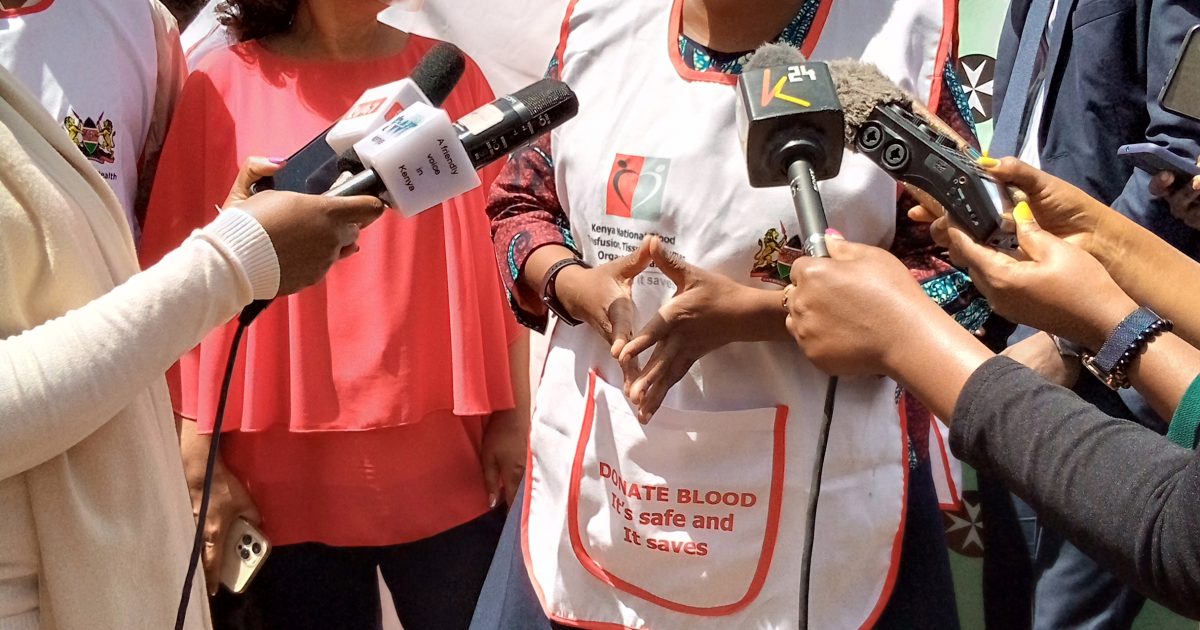The CEO of the Kenya National Blood Transfusion Service (KNBTS) Dr Nduku Kilonzo ushered in the Valentine’s Day celebrations by conducting a blood donation exercise to enable the country have adequate blood in the blood bank.
Speaking during the exercise at the Kenya National Archives, Dr Kilonzo said that the event aimed at getting and giving life to Kenyans by ensuring that the donated blood is used appropriately and is available for Kenyans in need.
The CEO stated that over the last one year, KNBTS has collected a total of 297,000 units of blood, which is the highest number ever recorded in the country.
“There has been investments by the Ministry of Health to make sure that we have the capacity to develop and process blood components operation by being able to buy and put in centrifuges which are available in 16 counties,” she added.
Dr Kilonzo further explained that one bag of blood can save up to four Kenyans, because the unit can be processed into different components like platelets, plasma, red blood cells and white blood cells.
To ensure accountability, she said that the Ministry has developed reforms to ensure that equipment for blood donation are available and assured that all donated blood is tested for safety to avoid blood transmissible diseases.
“Blood donation exercise is happening around 40 sites across the country in different counties. I am appealing to all Kenyans to be regular blood donors where women can donate blood up to three times and men up to four times in a year,” she said.
Nairobi Metropolitan Services (NMS) Health Director Dr Oluga Ouma, mentioned that red is the colour of both love and blood, hence there is a relationship between celebration of love and donation of blood.
Dr Oluga cited Nairobi as the center of healthcare in the country, where people are referred to from other counties and has 66,000 child deliveries annually, of which 28 percent of them are cesarean deliveries which require blood.
He highlighted that NMS is increasing the number of health facilities as well as ensuring that blood is available to patients undergoing surgery and cancer patients who require blood during chemotherapy or dialysis.
“We must make sure that blood is available to our loved ones whenever they need it, because without blood we are not guaranteed of their next life,” said Dr Oluga.
He added that through support from NMS, they have been able to reduce the number of maternal deaths by more than a half, which he attributed to the efforts put in place to increase blood collection.
“We support such initiatives like this to make sure we sensitize Kenyans to voluntarily donate blood so that we have enough blood in our blood banks,” he said.
Dr Oluga announced that the request to donate blood should be made through public and private facilities so that blood is collected in the correct way, without having to cause anxiety to patients.
Nairobi County Women Representative Esther Passaris said that the blood donation will continue for five more days and urged Kenyans to come out in large numbers to donate.
She said people should not be scared to donate blood as each individual is first tested to determine if they have enough blood.
By Mary Wangari and Manu Mumba



